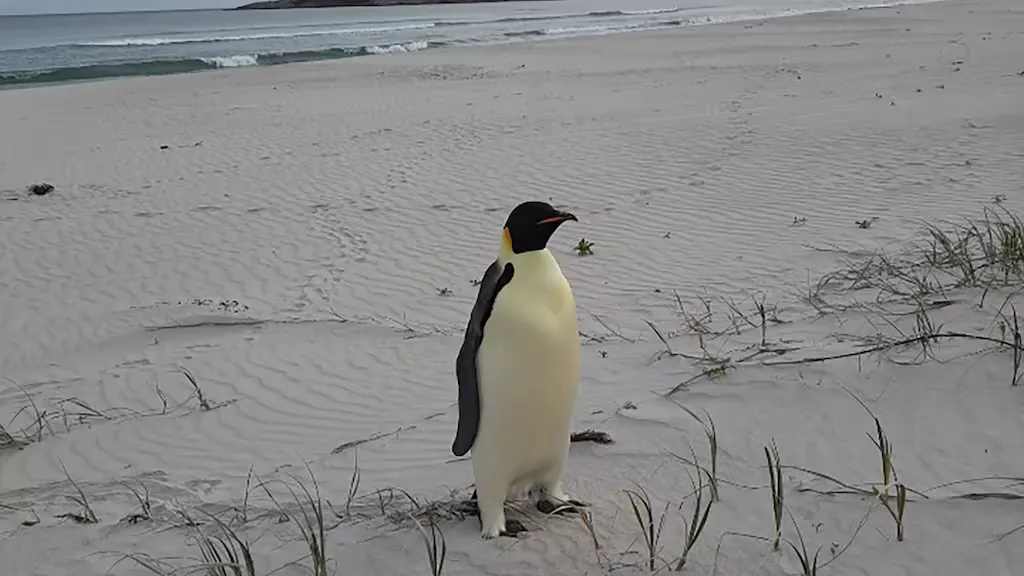Emperor Penguin Stranded on Australian Beach Sparks Global Concern
An emperor penguin, found malnourished far from its Antarctic home on the Australian south coast, is being cared for by a wildlife expert. The adult male was discovered on November 1 on a popular tourist beach in the town of Denmark, approximately 3,500 kilometers north of the icy waters off the Antarctic coast.
The largest penguin species has never been reported in Australia before, according to University of Western Australia research fellow Belinda Cannell. While some emperor penguins have reached as far as New Zealand, this incident marks a significant departure from their typical migration patterns.
Background on Emperor Penguins
Emperor penguins (Aptenodytes forsteri) are the largest penguin species, reaching heights of up to 122 cm (48 in) and weighing between 22-45 kg (49-99 lbs). These remarkable birds are well adapted to life in extreme cold climates, with a unique feather structure that helps to conserve heat. Emperor penguins are also highly social animals, often gathering in large colonies on the ice shelves of Antarctica.
Why was the Penguin Found on Australian Beach?
Cannell expressed her surprise at the penguin’s decision to venture so far from its native habitat. “I have no idea why the penguin travelled to Denmark,” she said. The lack of clear motivations behind this unusual behavior highlights the complexities of animal migration and the need for further research.
Current Situation and Rehabilitation Efforts
Cannell is advising seabird rehabilitator Carol Biddulph, who is caring for the penguin. To help the bird cope with its alien climate, Biddulph is using a chilled water mist spray therapy. The penguin initially weighed 23 kg, significantly lighter than the average healthy male, which can weigh over 45 kg.
Rehabilitation Goals and Potential Return to Antarctica
The Western Australia state’s Department of Biodiversity, Conservation and Attractions has stated that its primary focus is on rehabilitating the penguin. While options for returning the penguin to Antarctica are still being explored, it remains unclear whether this would be possible or feasible.
Conservation Implications and Future Research Directions
This remarkable incident highlights the importance of continued research into emperor penguin behavior and conservation efforts. The discovery of an emperor penguin in Australia sparks questions about the impact of climate change on these vulnerable species.
Some potential directions for future research include:
* Investigating the causes of this unusual migration pattern
* Studying the effects of climate change on emperor penguin populations and habitats
* Exploring ways to enhance conservation efforts for emperor penguins in the wild
Conclusion
The discovery of an emperor penguin on an Australian beach is a remarkable and unexpected event that highlights the complexities of animal behavior and conservation. As we continue to learn more about this incredible species, it is essential that we prioritize their welfare and work towards protecting their habitats and preventing further disruptions to their natural migration patterns.
In the meantime, the penguin remains in care at the Denmark Wildlife Park, where it continues to receive specialized attention and treatment from wildlife experts.

0 Comments